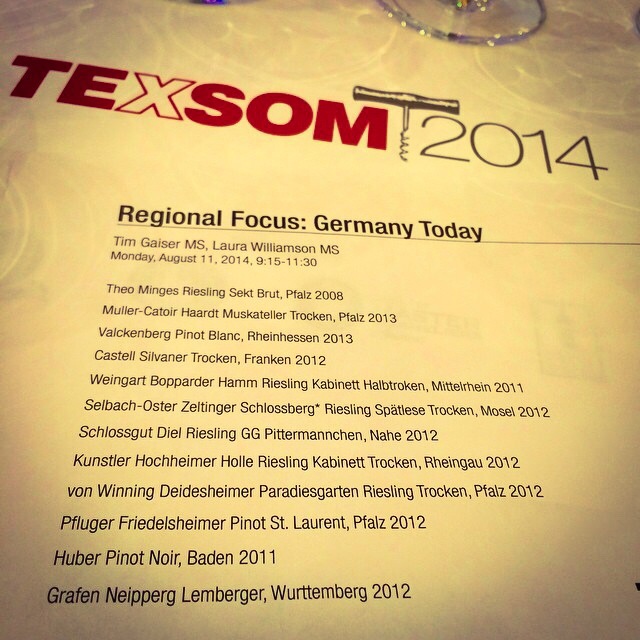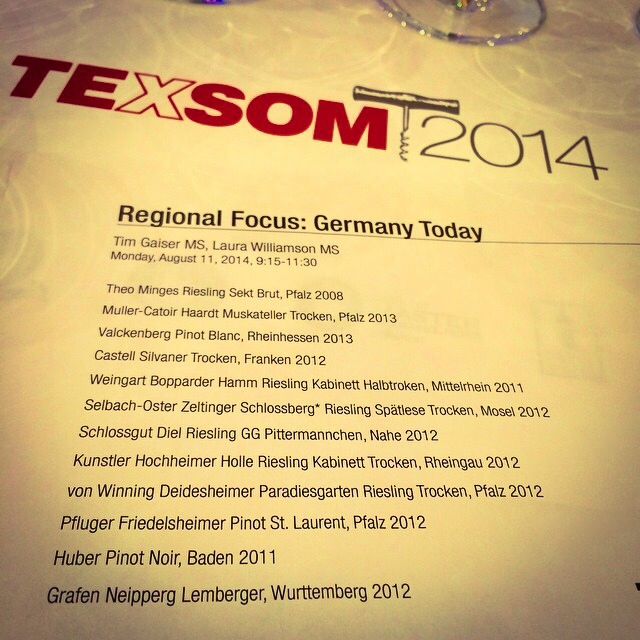
Texsom 2014: What You Can Learn about Texas Wine in the Germany Today Session
German wines have always been a fascination for me. I’ve been to Germany many times and have friends that have poured some pretty darn good German wines into me. This has left me will some strong bonds with fine Germans, fine German wines and lots of good memories.
Besides good memories, German wines are notable to me for their intimidation factor. To start with, the wine laws and labels in Germany appear to have been developed by the same guys that wrote the users manual for my BMW: Complicated.
So, every time I have the chance to taste German wines with experts such as Tim Gaiser MS and Laura Williamson MS like at this year’s Texsom, I grab the opportunity to taste and enjoy the brisk, minerally and flavorful qualities of the wine. I also look to the experts to decipher the code of German wines, their grape varieties, their labels and (oh yes) their quality system laws.
Interestingly enough the vast majority of German wines are now made dry. This is despite the fact that most people, if you ask them, will tell you: “I don’t drink German wines because they’re all sweet.” But, now this is where German wine laws start to read like my BMW manual. The Germans have a handful of classifications that relate to dryness of the wines. Do you mean dry or do you mean really dry, or perhaps only somewhat dry. Yikes!
You know, this thing about sweet German wines is essentially the same thing that I still hear while I travel around Texas. One major excuse people make for not drinking Texas wines is sweetness. A lot of these people say, “I don’t drink Texas wine because their all sweet.” That’s plain wrong! But, you can’t win by arguing with them.
While practically every Texas winery does have a sweet wine or two, the vast majority of Texas wines are made dry.
The important take away from the German Today Session at Texsom 2014 was not to let the preconception of consumers block the way to acceptance of a regions wines; whether it is Germany or Texas.
The important step is to get the wine in the glass and let the consumer taste it for him/herself. If the wine is well made, representative, suits the consumer and leaves them with a pleasant (maybe unexpected) experience. If it does, then the rest will follow.
I know that this is an old adage, but Germany (and Texas) will get it’s new converts one at a time. The good thing about Texsom is that they can be lined up and converted one by one by one by one, and so forth!
